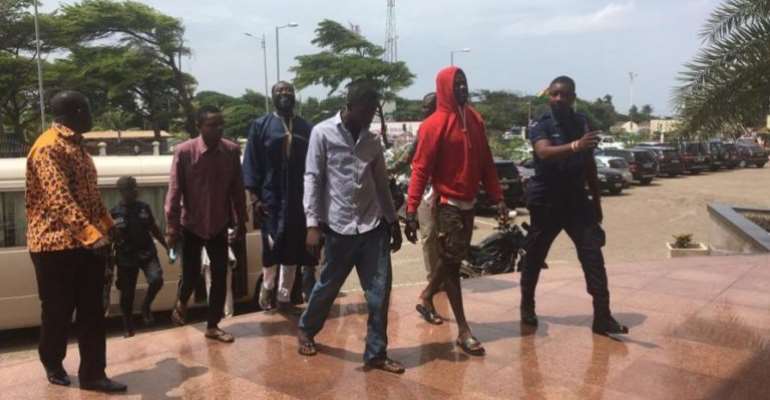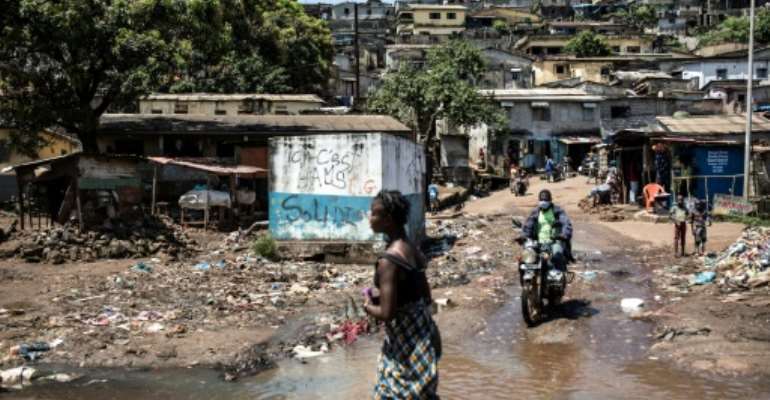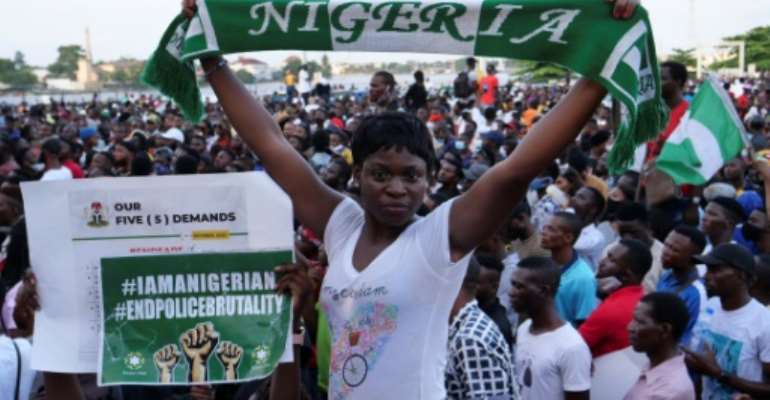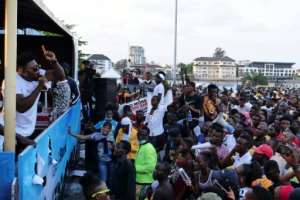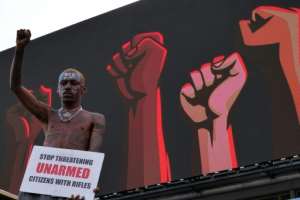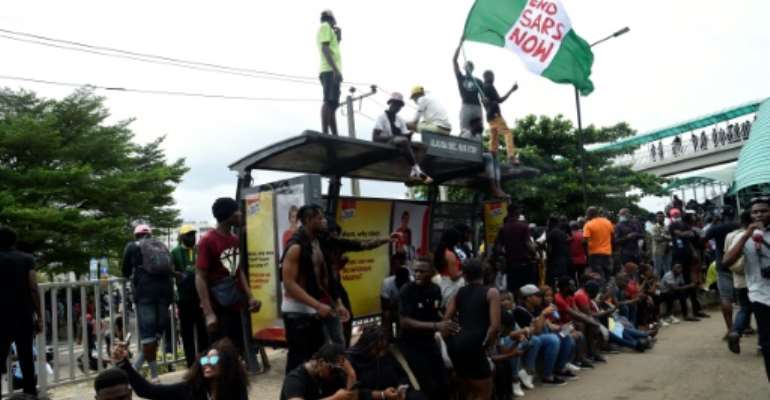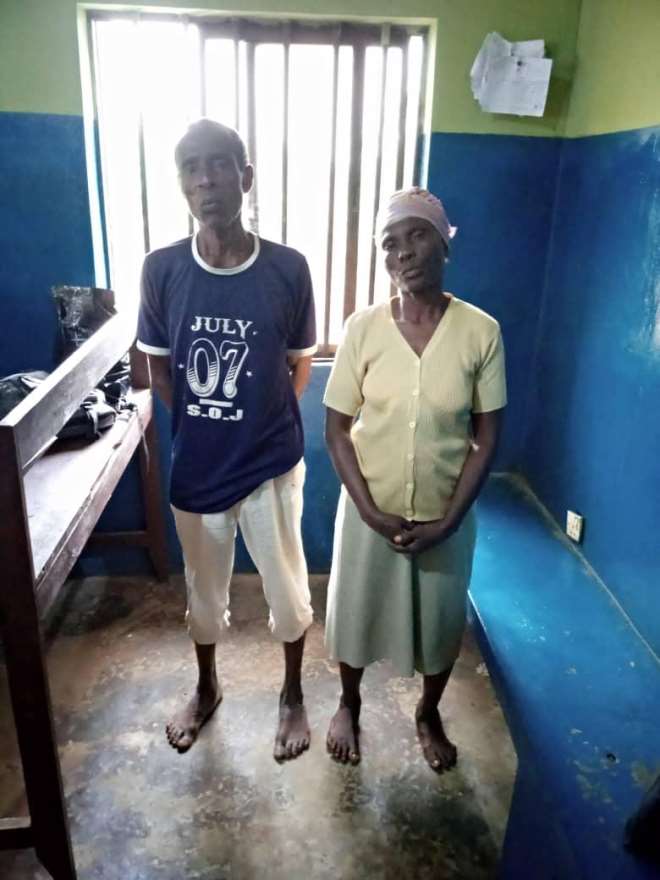ACCIDENTS ARE PREVENTABLE INCIDENTS
Ryan Pickrell

A sinking Marine Corps amphibious assault vehicle is a "death trap" because of how hard it can be to get everyone out alive, Marine veterans told Insider after a deadly incident this summer.
Several former Marines said that the ways the aging AAVs are designed and operated make it "tough" to get a full load of Marines out in a crisis. If it sinks, troops in heavy combat gear have to hold their breath and climb out of a flooded vehicle through narrow, hard-to-open hatches. The escape plans for the often overcrowded vehicles appear problematic at best and at worst, disasters waiting to happen.
AAVs rarely sink and fatal mishaps are uncommon for the 26-ton tracked vehicles made to move Marines from warships at sea to shore under fire, but tragedy struck in late July when an amphibious vehicle sank rapidly to a depth of 385 feet off the coast of southern California during a training exercise.
The Marine Corps says that its AAVs can hold roughly two dozen troops, but they look like they could only reasonably hold about half that. The vehicle that sank in July was pretty packed, carrying 16 service members at the time of the accident.
Eight Marines and a Navy sailor died. Most appear to have never made it out of the drowning vehicle. The incident was the deadliest training accident in the history of the Corps' amphibious assault vehicles.
The tragedy shook the Corp's confidence in its AAVs, with the commandant suspending waterborne operations pending the outcome of an ongoing investigation. The Corps also fired the commander of the unit involved in the accident.
"Until the investigation is complete, we don't know if the causal factors were related to the vehicle, the procedures, the training, the environment, or some combination of these," the Corps told Insider, declining to comment on whether or not it believes its AAVs are safe.
What exactly happened to the AAV that sank this summer is still unclear, but what is clear is that a sinking AAV is dangerous, and in some cases, deadly.

'Torture chamber'
AAVs, sometimes called "tracks" or "amtracs," are rough rides even when they aren't filling up with water and sinking, current and former Marines told Insider.
The Marines, who enter through a large ramp that lets down in the back, are tightly packed inside the 26-foot-long armored vehicle like sardines. It's loud, it's tough to breathe, it smells of exhaust and diesel fumes, and it is not uncommon to see infantrymen vomit from motion sickness or panic from claustrophobia as the windowless hull rocks in the water.
"I've had my fair share of people freaking out in the back of an amtrac," Sgt. Juan Torres, an AAV section leader, told Insider during a visit to Camp Pendleton earlier this year. "They don't even know they're claustrophobic, and next thing you know, they're freaking out, screaming, 'I need air, I need air.'"
Nate Eckman, a Marine infantryman who left the Corps a few years ago, told Insider that riding inside an AAV is "one of the worst memories" he has from his time in the service.
"It was awful being cramped, sucking in diesel fuel, and feeling claustrophobia I didn't even know I had," Eckman recalled. "People fight. They get nauseous and puke in the back. You're enclosed inside the whole time, and you have no idea where you are or if you have ten more minutes or five more hours."
Eckman acknowledged that AAVs are effective for making Marines amphibious, but he also said that an AAV is a "torture chamber" for troops riding inside. "I watched guys break," Eckman said, explaining that disdain for the AAV was fairly common among the Marine infantry.

'Brace yourself'
The Corps has been relying on AAVs since the 1970s. They require a lot of work to maintain and operate, and sometimes, things go wrong inexplicably. "You can do everything perfectly, and then, the moment you roll out, something goes wrong," Torres said. "If everything is going smoothly, you should be worried."
The fully-armed ship-to-shore troop transports deploy from amphibious warships and are propelled by jets and spinning tracks. In the water, AAVs maintain a very low profile, with most of the vehicle already below the waterline.
The AAV that sank in late July is believed to have hit rough seas and taken on more water than the pumps could handle, possibly causing the vehicle to sink.
Marines who conduct amphibious operations with AAVs have to go through some variation of the submerged vehicle egress training to prepare for the possibility that their vehicle will sink at sea. The training involves sitting Marines in a simulated AAV hull and dropping it into a pool.
"The infantry training was like a four-hour day at a pool," Eckman said. "You get in this plexiglass container that represents the body of a track. You sit in it, you float three feet above the water, and then they drop it in."
He said that he did not feel the training adequately prepared him for an actual emergency. For example, "you're not carrying the normal amount of equipment you normally would," he said. "You're in a very light state." It is less gear, less people, less of the things that make egress a challenge.
The former Marine said that "there are almost no elements that I think would be present in a real drowning scenario," explaining that he remembers going through the training and thinking that it "feels very ineffective."
As a Marine, Eckman actually had to bail out of a sinking AAV. Fortunately, the vehicle sank slowly in calm waters, so everyone was able to get out. While a slow-sinking track is easier to escape, it is still a danger because of how quickly and unexpectedly the situation can change.
If an AAV sinks rapidly, the egress "procedure is to brace yourself when the vehicle goes underwater and wait until the violent motion stops" before exiting the vehicle, explained Gunnery Sgt. Michael Pena, a curriculum chief at the Assault Amphibian School.
Basically, the Marines, who have access to neither seatbelts nor supplemental breathing devices, cling to their bench seats and hold their positions until the vehicle fills with water and steadies.
"You have to brace yourself and know where you are in the vehicle," Pena said, emphasizing that "you do not want to disorient yourself when the vehicle goes under."
Underwater, "there are no commands coming from any of the vehicle crew or anyone else," Pena explained. "Marines are expected to do what they need to do to exit the vehicle." In that moment, Marines must fend for themselves in the chaos.
Undoubtedly stressed and holding their breath in the bright green glow of the emergency egress lighting system, the troops, in full gear but supported by a life preserver, must try to escape the sunken AAV by way of a handful of hatches, assuming they open as intended. They then swim to the surface with only the air in their lungs, shedding their gear when they can.
"Getting out of the vehicle is your primary goal," Pena said, explaining that the next step is for troops to get to the surface as quickly and efficiently as possible. "The more motion you are doing in the water while not breathing is just going to burn oxygen," he said.
The escape plan was simple, Eckman recalled. "Hold, stay calm, and try to hold your breath long enough to get out and come up."
But, as their vehicle sinks, Marines are unlikely to be calm, and the increased adrenaline will increase oxygen demand, reducing the amount of time they can hold their breath.
There is also the issue of the hatches through which troops are expected to escape. Marine veterans say they can be difficult to deal with normally and become even more challenging underwater. And, even if they do open, getting out is still anything but easy.
Jacob Aronen, a Marine veteran familiar with AAVs, told Marine Corps Times that the top hatches, the primary egress points, "often have handles that are so stiff you need to beat them with a hammer to open."
Aronen further explained that it would be tougher to open the heavy hatches on a sinking vehicle because of the water pressure. Marine veterans that talked to Insider raised similar concerns.
Open, the hatches are not very wide, so "if you have your gear on, it is very difficult to get out of them in a rush," Tagen Schmidt, a Marine veteran who was badly burned when his amtrac caught fire, told Insider. Schmidt was one of 15 service members who were injured when his AAV burst into flames.
Were a service member in full gear with an inflated life preserver to get stuck exiting the vehicle, he would block the way for those behind him. An injured Marine could have the same effect.
There are procedures to get Marines out of the vehicles, but a single hitch in the process could mean the difference between a safe egress and a deadly catastrophe.

'Design flaws'
"If [an AAV] is designed to allow for the egress of a dozen plus combat-loaded Marines in an extreme scenario, that is not obvious to me at all," Eckman said, adding that he believes the Corps is overcrowding its vehicles.
Thinking about the deadly incident in July, he asked, "How many Marines had to be on that AAV for it not to be a fatal accident? Do we have policies that essentially cause overcrowding? Was the actual cause of death overcrowding because there were just too many people on there?"
"The space is tight," Eckman said. "You are literally piling people on top of each other."
Bud Colby, a former Marine amtracker, told Insider that the challenge of getting everyone out of a fast-sinking AAV is "one of those known design flaws."
"Twenty-six tons are going to sink quick," he said, explaining that "you physically can't get the people out in time, and that ties back to the design of the vehicle."
Altogether, an AAV has six hatches. There are two cargo hatches, a rear hatch, and three forward crew hatches. For the troops in the back, the forward hatches are not particularly accessible. But, were there to be a problem with the back hatches, those may be the only options.
"It is a tight fit in there," Colby said. "Being realistic, it is going to be tough to get a lot of people out of a vehicle in any short period of time." He said that many military vehicles come with inherent risks though.
Of the Marine veterans that spoke to Insider, Schmidt was the most critical of the AAVs. "For the most part, and mainly because of my experience, they are death traps and need to be updated if not completely eradicated from the Marine Corps," he said.
"We're already the most unstoppable force in the world. If we were to get new gear and equipment, not a country in the world would be able to touch us," he argued.
The Marine Corps is currently in the process of phasing out the AAV, which is being replaced by the new Amphibious Combat Vehicle. The service said in late September that new vehicle deliveries would start the following month.
The Corps told Insider that the new ACV provides "increased lethality and protected mobility and supports the survivability and safety of the crew and embarked Marines." The service said the new vehicle "requirements and design address safety in the water to include emergency egress through the hatches." The service did not, however, say how it does that.
Ryan Pickrell
Assault amphibious vehicles are rough rides in choppy seas, especially for the troops riding in the back. Marine Corps photo by Cpl. Adam Dublinske
Nine service members died this summer when a Marine Corps amphibious assault vehicle sank off the coast of California during a training exercise. It was the deadliest training accident in the vehicle's decades-long history.
The Corps is investigating why the AAV sank and why so many troops lost their lives when it did. Though the investigation is still ongoing, the commanding officer of the unit involved has been relieved of his command.
Marine veterans told Insider that it can be extremely difficult to get everyone out of a rapidly sinking vehicle because the vehicles are sometimes overcrowded and the escape routes are not always reliable.
When the vehicle goes under, Marines in full gear brace themselves as the AAV fills with water. When the vehicle steadies, they open the hatches and swim to the surface on only the air in their lungs, shedding their gear when they can, a current Marine involved in egress training explained.
Any hitch in that process, such as an escape hatch that won't open or a stuck Marine, could be disastrous. One Marine veteran said that the heavy tracked amphibious vehicles are "death traps."
The Corps has suspended all AAV waterborne operations until the investigation concludes and declined to comment on whether it believes AAVs are currently safe.
A sinking Marine Corps amphibious assault vehicle is a "death trap" because of how hard it can be to get everyone out alive, Marine veterans told Insider after a deadly incident this summer.
Several former Marines said that the ways the aging AAVs are designed and operated make it "tough" to get a full load of Marines out in a crisis. If it sinks, troops in heavy combat gear have to hold their breath and climb out of a flooded vehicle through narrow, hard-to-open hatches. The escape plans for the often overcrowded vehicles appear problematic at best and at worst, disasters waiting to happen.
AAVs rarely sink and fatal mishaps are uncommon for the 26-ton tracked vehicles made to move Marines from warships at sea to shore under fire, but tragedy struck in late July when an amphibious vehicle sank rapidly to a depth of 385 feet off the coast of southern California during a training exercise.
The Marine Corps says that its AAVs can hold roughly two dozen troops, but they look like they could only reasonably hold about half that. The vehicle that sank in July was pretty packed, carrying 16 service members at the time of the accident.
Eight Marines and a Navy sailor died. Most appear to have never made it out of the drowning vehicle. The incident was the deadliest training accident in the history of the Corps' amphibious assault vehicles.
The tragedy shook the Corp's confidence in its AAVs, with the commandant suspending waterborne operations pending the outcome of an ongoing investigation. The Corps also fired the commander of the unit involved in the accident.
"Until the investigation is complete, we don't know if the causal factors were related to the vehicle, the procedures, the training, the environment, or some combination of these," the Corps told Insider, declining to comment on whether or not it believes its AAVs are safe.
What exactly happened to the AAV that sank this summer is still unclear, but what is clear is that a sinking AAV is dangerous, and in some cases, deadly.
Marines board an amphibious assault vehicle. US Army National Guard photo by Cpl. Katharine Silent Water
'Torture chamber'
AAVs, sometimes called "tracks" or "amtracs," are rough rides even when they aren't filling up with water and sinking, current and former Marines told Insider.
The Marines, who enter through a large ramp that lets down in the back, are tightly packed inside the 26-foot-long armored vehicle like sardines. It's loud, it's tough to breathe, it smells of exhaust and diesel fumes, and it is not uncommon to see infantrymen vomit from motion sickness or panic from claustrophobia as the windowless hull rocks in the water.
"I've had my fair share of people freaking out in the back of an amtrac," Sgt. Juan Torres, an AAV section leader, told Insider during a visit to Camp Pendleton earlier this year. "They don't even know they're claustrophobic, and next thing you know, they're freaking out, screaming, 'I need air, I need air.'"
Nate Eckman, a Marine infantryman who left the Corps a few years ago, told Insider that riding inside an AAV is "one of the worst memories" he has from his time in the service.
"It was awful being cramped, sucking in diesel fuel, and feeling claustrophobia I didn't even know I had," Eckman recalled. "People fight. They get nauseous and puke in the back. You're enclosed inside the whole time, and you have no idea where you are or if you have ten more minutes or five more hours."
Eckman acknowledged that AAVs are effective for making Marines amphibious, but he also said that an AAV is a "torture chamber" for troops riding inside. "I watched guys break," Eckman said, explaining that disdain for the AAV was fairly common among the Marine infantry.
Marines aboard a lightly-outfitted amphibious assault vehicle prepare for an amphibious assault. US Army National Guard photo by Spc. Emily Eppens
'Brace yourself'
The Corps has been relying on AAVs since the 1970s. They require a lot of work to maintain and operate, and sometimes, things go wrong inexplicably. "You can do everything perfectly, and then, the moment you roll out, something goes wrong," Torres said. "If everything is going smoothly, you should be worried."
The fully-armed ship-to-shore troop transports deploy from amphibious warships and are propelled by jets and spinning tracks. In the water, AAVs maintain a very low profile, with most of the vehicle already below the waterline.
The AAV that sank in late July is believed to have hit rough seas and taken on more water than the pumps could handle, possibly causing the vehicle to sink.
Marines who conduct amphibious operations with AAVs have to go through some variation of the submerged vehicle egress training to prepare for the possibility that their vehicle will sink at sea. The training involves sitting Marines in a simulated AAV hull and dropping it into a pool.
"The infantry training was like a four-hour day at a pool," Eckman said. "You get in this plexiglass container that represents the body of a track. You sit in it, you float three feet above the water, and then they drop it in."
He said that he did not feel the training adequately prepared him for an actual emergency. For example, "you're not carrying the normal amount of equipment you normally would," he said. "You're in a very light state." It is less gear, less people, less of the things that make egress a challenge.
The former Marine said that "there are almost no elements that I think would be present in a real drowning scenario," explaining that he remembers going through the training and thinking that it "feels very ineffective."
As a Marine, Eckman actually had to bail out of a sinking AAV. Fortunately, the vehicle sank slowly in calm waters, so everyone was able to get out. While a slow-sinking track is easier to escape, it is still a danger because of how quickly and unexpectedly the situation can change.
If an AAV sinks rapidly, the egress "procedure is to brace yourself when the vehicle goes underwater and wait until the violent motion stops" before exiting the vehicle, explained Gunnery Sgt. Michael Pena, a curriculum chief at the Assault Amphibian School.
Basically, the Marines, who have access to neither seatbelts nor supplemental breathing devices, cling to their bench seats and hold their positions until the vehicle fills with water and steadies.
"You have to brace yourself and know where you are in the vehicle," Pena said, emphasizing that "you do not want to disorient yourself when the vehicle goes under."
Underwater, "there are no commands coming from any of the vehicle crew or anyone else," Pena explained. "Marines are expected to do what they need to do to exit the vehicle." In that moment, Marines must fend for themselves in the chaos.
Undoubtedly stressed and holding their breath in the bright green glow of the emergency egress lighting system, the troops, in full gear but supported by a life preserver, must try to escape the sunken AAV by way of a handful of hatches, assuming they open as intended. They then swim to the surface with only the air in their lungs, shedding their gear when they can.
"Getting out of the vehicle is your primary goal," Pena said, explaining that the next step is for troops to get to the surface as quickly and efficiently as possible. "The more motion you are doing in the water while not breathing is just going to burn oxygen," he said.
The escape plan was simple, Eckman recalled. "Hold, stay calm, and try to hold your breath long enough to get out and come up."
But, as their vehicle sinks, Marines are unlikely to be calm, and the increased adrenaline will increase oxygen demand, reducing the amount of time they can hold their breath.
There is also the issue of the hatches through which troops are expected to escape. Marine veterans say they can be difficult to deal with normally and become even more challenging underwater. And, even if they do open, getting out is still anything but easy.
Jacob Aronen, a Marine veteran familiar with AAVs, told Marine Corps Times that the top hatches, the primary egress points, "often have handles that are so stiff you need to beat them with a hammer to open."
Aronen further explained that it would be tougher to open the heavy hatches on a sinking vehicle because of the water pressure. Marine veterans that talked to Insider raised similar concerns.
Open, the hatches are not very wide, so "if you have your gear on, it is very difficult to get out of them in a rush," Tagen Schmidt, a Marine veteran who was badly burned when his amtrac caught fire, told Insider. Schmidt was one of 15 service members who were injured when his AAV burst into flames.
Were a service member in full gear with an inflated life preserver to get stuck exiting the vehicle, he would block the way for those behind him. An injured Marine could have the same effect.
There are procedures to get Marines out of the vehicles, but a single hitch in the process could mean the difference between a safe egress and a deadly catastrophe.
A Marine amphibious assault vehicle charges through the surf. Thomson Reuters
'Design flaws'
"If [an AAV] is designed to allow for the egress of a dozen plus combat-loaded Marines in an extreme scenario, that is not obvious to me at all," Eckman said, adding that he believes the Corps is overcrowding its vehicles.
Thinking about the deadly incident in July, he asked, "How many Marines had to be on that AAV for it not to be a fatal accident? Do we have policies that essentially cause overcrowding? Was the actual cause of death overcrowding because there were just too many people on there?"
"The space is tight," Eckman said. "You are literally piling people on top of each other."
Bud Colby, a former Marine amtracker, told Insider that the challenge of getting everyone out of a fast-sinking AAV is "one of those known design flaws."
"Twenty-six tons are going to sink quick," he said, explaining that "you physically can't get the people out in time, and that ties back to the design of the vehicle."
Altogether, an AAV has six hatches. There are two cargo hatches, a rear hatch, and three forward crew hatches. For the troops in the back, the forward hatches are not particularly accessible. But, were there to be a problem with the back hatches, those may be the only options.
"It is a tight fit in there," Colby said. "Being realistic, it is going to be tough to get a lot of people out of a vehicle in any short period of time." He said that many military vehicles come with inherent risks though.
Of the Marine veterans that spoke to Insider, Schmidt was the most critical of the AAVs. "For the most part, and mainly because of my experience, they are death traps and need to be updated if not completely eradicated from the Marine Corps," he said.
"We're already the most unstoppable force in the world. If we were to get new gear and equipment, not a country in the world would be able to touch us," he argued.
The Marines have been trying to replace the AAV for two decades, but until recently, efforts to replace the aging vehicles were unsuccessful.One replacement attempt was the Expeditionary Fighting Vehicle, originally known as the Advanced Amphibious Assault Vehicle.The vehicle was expected to be faster, more heavily armored, equipped with more firepower, and more reliable than the AAV, but the project was canceled in 2011 due to rising costs, among other issues. That same year, an AAV carrying six Marines sank off the coast of California. One service member died in the accident.
The Marine Corps is currently in the process of phasing out the AAV, which is being replaced by the new Amphibious Combat Vehicle. The service said in late September that new vehicle deliveries would start the following month.
The Corps told Insider that the new ACV provides "increased lethality and protected mobility and supports the survivability and safety of the crew and embarked Marines." The service said the new vehicle "requirements and design address safety in the water to include emergency egress through the hatches." The service did not, however, say how it does that.





